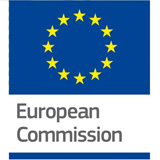You are here: Home > Research and Innovation > Collaborative Research > AquaSpace > Objectives
AQUASPACE OBJECTIVES
Objective 1 - To accurately identify industry-wide issues and options for increasing space for aquaculture development in Europe
1.1 - Apply an EAA framework to characterise key influences on the use of space by aquaculture including governance, legal, environmental, economic, market, social and cultural issues.
1.2 - Determine and prioritise the key issues constraining the growth of aquaculture in Europe in offshore, coastal and freshwater systems, through close consultation with stakeholders.
Objective 2 - Develop and deliver tailored tools for spatial management
2.1 - Work with users to produce innovative applications (a toolbox), ready for implementation, to address spatial constraints relating to aquaculture in the context of other users in a changing environment. This will build on EU and National predecessor projects and include tools to assess and gain social acceptability of plans for aquaculture development.
2.2 - Develop operational tool(s) allowing for a risk-based analysis of spatial management options to support the leasing and licensing processes and facilitate investments, defined in a given spatial planning context taking into account the constraints identified.
2.3 - Characterise the range of zoning options presently operating or envisaged and appraise these in terms of embedding the principles of the ecosystem approach to aquaculture (FAO, 2010).
2.4 - Characterise the range of tools available for addressing spatial issues in relation to aquaculture and, where necessary, develop these further to extend their utility.
Objective 3 - To work collaboratively with stakeholders on tools validation
3.1 - Using a wide range of case studies, define ecosystem boundaries in space and time and identify the relevant stakeholders through close engagement of local end-users in an issue-focused, user-driven and scale-sensitive manner to test and assess relevant tools and document their utility.
Objective 4 - Synthesising outcomes for post-project legacy and impact
4.1 - Evaluate and compare the outcomes of case studies, synthesising the lessons learned across spatial and temporal scales, institutional levels environments, cultured species, and farming practices/systems of culture.
Objective 5 - Impacts by effective knowledge exchange
5.1 - Exchange knowledge throughout the project with a selected panel of key stakeholders in a User Reference Group.
5.2 - Produce an innovative digital platform to deliver the results of the project outputs (tools, evaluations, synthesis, case studies) with entry tailored to the needs of different user types (industry, planners, public) providing information and operational tools to end-users.
5.3 - Develop an online Masters level module on Marine Spatial Planning for Aquaculture for inclusion in MSc programmes on Aquaculture.



